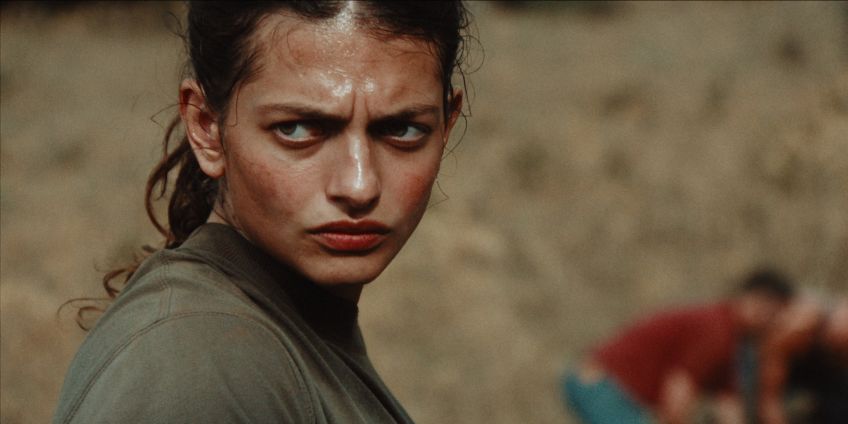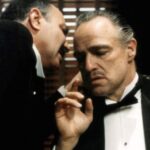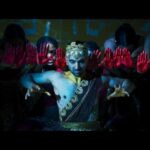Joyce Glasser reviews The Kingdom ( August 8, 2025 ) Cert. 15, 112 mins. in cinemas
A strikingly beautiful teenager, Lesia (Ghjuvanna Benedetti) is enjoying the summer break at the home of her aunt and uncle in a Corsican village. She helps with the farm work and even the killing of a boar for a community feast, but we see from her face that she is sympathetic with the animal. Under the burning sun, she hangs out at the beach with friends and her handsome new boyfriend, Fabian (Pierre Salasca). They make a date to meet when he finishes a summer job at three, but Lesia is not there. From where she is taken phone calls are prohibited.
At first resentful of being tricked by her aunt into moving her away without notice, with time Lesia transfer allegiances from the precious normalcy in her schoolgirl life to the rarer happiness of being with her widowed father, Pierre-Paul (Saveriu Santucci). The camera is always focused on Lesia’s huge, hungry eyes through which we observe the goings on at the seaside hideaway where Pierre-Paul and his clan are lying low.
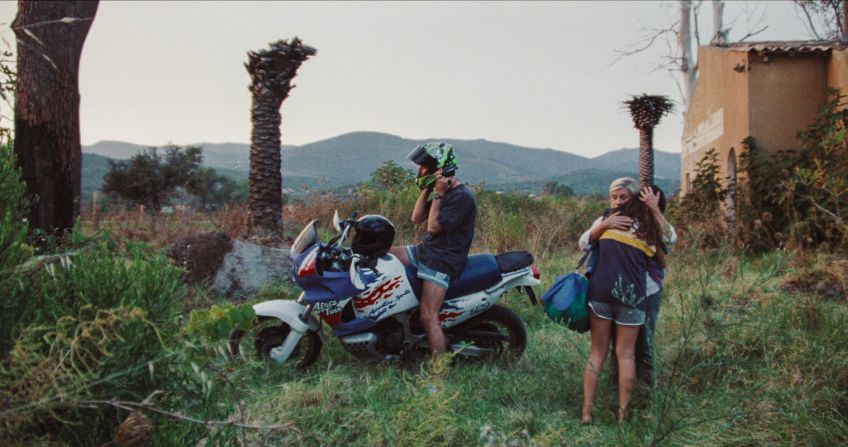
It is 1995 and the Corsican mafia is making unwanted headlines. At first we listen with the clan and Lesia to television broadcasts, the violence being remote. From the hideaway Pierre-Paul learns of a car bomb that killed several but spared the life of President Philippe Padovani by seconds. Lesia listens too, to hear that Padovani is a lifelong friend of “the mysterious clan leader Pierre-Paul Savelli, wanted by authorities since March 1, 1991.” There is even speculation her father might have been the target.
The only female in the household, Lesia carries out all the domestic chores, surrounded by middle-aged older men most of whom she has seen before during other interludes where she snatches moments of bonding with her father, swimming, fishing and learning to cook authentic fish stew.
The men sit around analysing the car bomb that just missed Padovani. Pierre-Paul is troubled: “the car bomb is not normal. Padovani’s an easy target. If you want to kill him, just put a bullet in his head.” Pierre-Paul sends out his men to gather information.
When her father and his cronies go out for a few hours leaving her alone in the house, Lesia disobeys orders not to make calls and tries to call Fabian. She also calls her aunt, lying about calling from a payphone, but her aunt refuses to take her home to the village.
The next morning brings news on the television of “unprecedented violence” when a vehicle was hit by a jeep being riddled with buckshot at point blank range. The victim was Joseph Benetti, a close friend of Pierre-Paul and Lesia’s godfather. Visibly shaken, Pierre-Paul paces the room, asking how it was possible. ‘He was coming here. Someone knew where he was going. We have to know….’
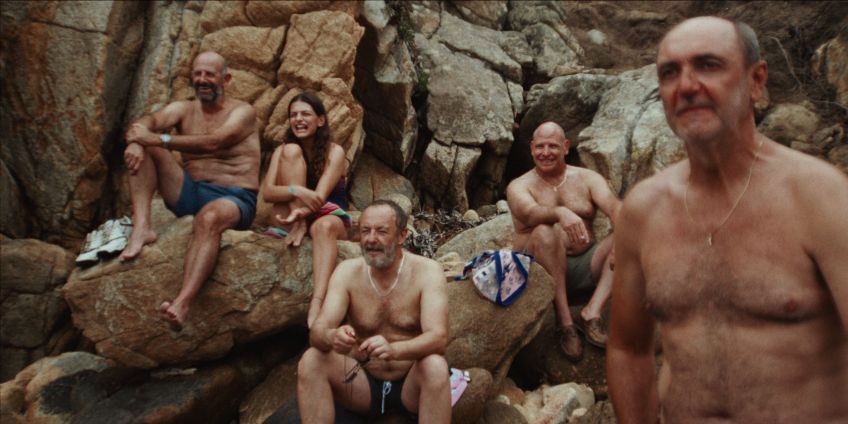
Lesia, seeing her father resetting the handset on the phone, can read his mind. She confesses to having made a call, but instead of incurring her father’s wrath, he reassures her. ‘Your calling all of Corsica wouldn’t have changed anything.’
Director Julien Colonna, who grew up in Corsica in the 1980s and ‘90s, lets the violence build, second hand at first, then coming closer where the action is dramatised. The carnage continues to build until the denouement – a moment arguably as shocking as the horse’s head in The Godfather.
As the cycle of violence narrows, the father and daughter who are so often apart, are on the run together disguised. At a holiday camp where Pierre-Paul hopes the pair will be safe while he plots his rival’s assassination he tells his daughter – though really, this seems to be for our benefit – the history of his life of crime. It began with the revenge of his father’s murder. He never expected to live to age 59, but twenty-four years later he is paying the price and now Lesia is, too.
Astonishingly, both Lesia and Pierre-Paul are played by first time actors discovered through a long auditioning process. If Lesia is noticeably older than her character’s fifteen years, she shifts seamlessly from innocent to savvy sponge, soaking up survival skills and making up for lost time. Their chemistry is as convincing as is the portrayal of the Corsican caïds. Much of the cast and, of course, the extras are local Corsicans.
But just as The Godfather was not only a mafia film but Michael’s coming-of-age story, so this is Lesia’s coming of age story. We see the illusions fade one by one and the reality of Pierre-Paul’s life as a hunted hunter set in as she shifts from rebellious child to foot soldier. ‘Should I take a walk?’ she asks her father who is deep in secretive discussion. But increasingly as Lesia learns her place, her father takes her into his confidence, as if there is no time left for pretence.
The motif of the animal hunting returns in a poignant confession when Lesia admits she never liked hunting but pretended to spend time with him. That is not the extent of her sacrifice, but will she end the vicious cycle? The revenge drama is one of the most popular and common genres in international cinema. If Colona sets up scenes that demand more tension than he creates, he gives us a new perspective with a moving father-daughter relationship.

